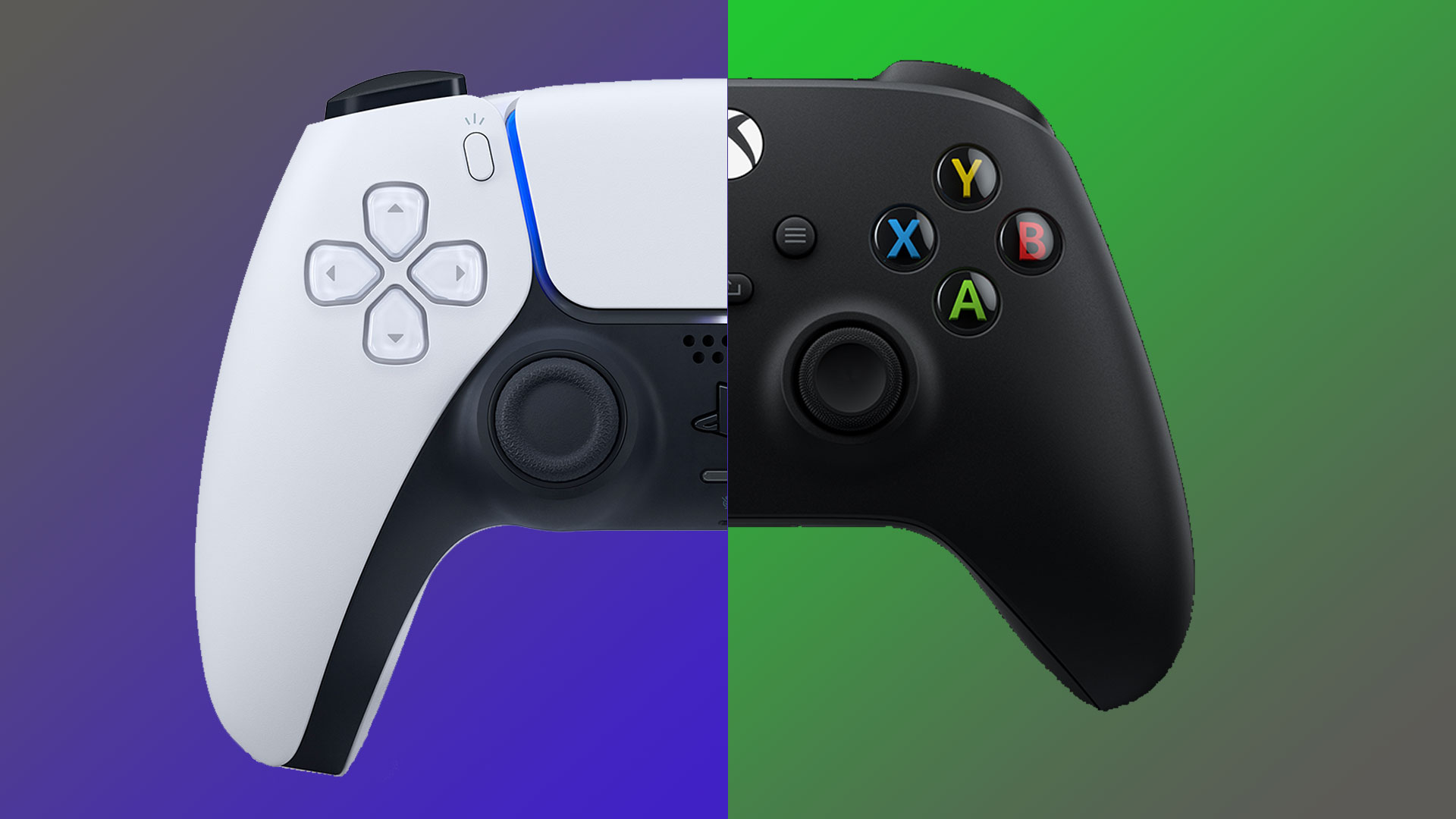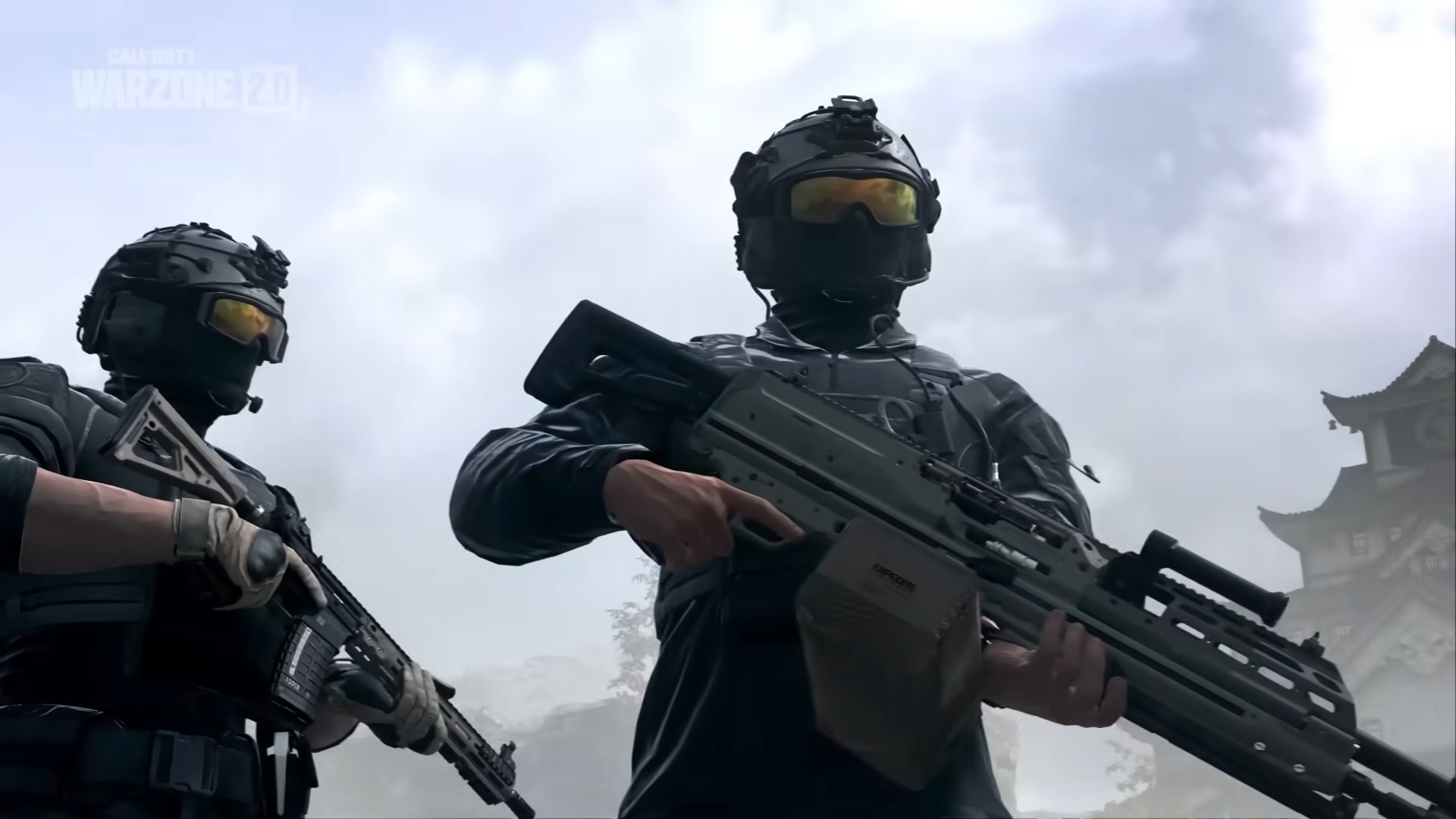Microsoft's new plan to buy Activision: make Sony look bad and PlayStation look good
Louder than ever, Microsoft argues Sony is both selfish and invulnerable

Microsoft's latest press conference did not deliver a decisive decision for the big Xbox Activision deal, but it was a big day for the pending acquisition nevertheless. Xbox has committed to 10-year deals with both Nintendo and Nvidia to bring Call of Duty to more platforms – 150 million devices by its math – if the deal is approved, and it's using these deals to simultaneously appeal to competition regulators and put pressure on Sony, just as everyone should've expected it to.
Opposition to this acquisition, particularly in the margins of the UK Competition and Market Authority's investigation, has been messy, to say nothing of the FTC lawsuit in the US. Sony and Microsoft will say virtually anything to make themselves or each other look good or bad depending on the situation. Sony says the deal is unfair, Microsoft says it will dole out Call of Duty fairly; Sony says it's a danger to the games industry, Microsoft says Sony already has an unshakable grip on the industry – it's desperate lawyer lingo all the way down.
What Microsoft said at its recent press conference

Now Microsoft's tried to draw some new battle lines. "The number one concern that people have expressed about this acquisition is that Call of Duty will become less available to people," president Brad Smith said. "What we have shown is that the opposite is now true. If regulators approve of this acquisition, Call of Duty will become available on 150 million new devices. That's a day that we hope competition regulators will celebrate."
This stance has not come without repeats of the argument that Sony, as a market leader in consoles, cannot feasibly be damaged by this acquisition. Smith claims Sony has an 80/20 lead in Europe, a 96/4 lead in Japan, and a 70/30 lead globally, with the fourth quarter of 2022 showing a 69/31 lead for PlayStation sales.
We also got some very obvious shots at the house of PlayStation. "Sony, like the regulators, has an alternative as well," Smith said. "It can either do a deal with Microsoft or argue that this deal should be blocked. We understand, in some ways, it can be tempting when you have an 80% share to just hold on as long as possible to your current market share, to hope that the future that European game developers have said is cross-platform doesn't come until later. I don't think that's what regulators are in the business of doing. They're not here to protect super dominant companies ... it never occurred to me to suggest that a company with such a large market share needed to be protected by smaller firms in the market as they sought to grow."
This is a blatant appeal to regulators that positions Sony as the bad guy
In other words, Microsoft claims that this corporate consolidation is so pro-consumer that it will bring Call of Duty to 150 million new devices. Microsoft is so pro-competition that it not only won't withhold Call of Duty from existing platforms, it will bring it to new ones. Opposing the biggest merger in the history of games is anti-competitive, actually. But Sony, who is so much bigger than Microsoft, is selfishly blocking that innovation, the scoundrels, the absolute rogues. And you can bet it's no coincidence that Xbox struck 10-year deals with Nintendo and Nvidia, because it can now look at Sony and say, 'Well, everyone else likes our 10-year deals. What's your problem? Why do you hate the cross-platform future so much, Sony?'
This is a blatant appeal to regulators that positions Sony as the bad guy trying to block a perceived threat to its market dominance to the alleged detriment of 150 million users. It also turns Nintendo and Nvidia into bludgeons for Microsoft to beat Sony with. Hammering this home, Smith noted that "because it applies to Call of Duty, obviously it only has a practical effect if Microsoft ends up owning Call of Duty." I mean, come on. Microsoft showed admirable restraint by not playing Sarah McLachlan's 'In the arms of an angel' during the press conference and ending with 'Come on Sony, do it for the kids.'
Weekly digests, tales from the communities you love, and more
Activision Blizzard was amusingly quick to support this rhetoric. "Microsoft is doing exactly what they said they’d do," an ABK spokesperson said in a statement. "Sony continues to deny the opportunity for a long-term agreement and is undermining the deal to protect its two-decade dominance in video games." And yes, after this statement, part of me does want this deal to fall through just to see Activision and Sony in the same room in the future acting like feuding in-laws who will never forget that grudge.
The new 10-year deals

Why would Microsoft so readily promise Call of Duty to Nintendo when it clearly can't reach a deal with PlayStation? Because it knows the series never has been, and never will be, a system seller for the Switch or its inevitable successor. Xbox does not compete with Nintendo for Call of Duty sales, or for console sales driven by interest in Call of Duty. Regardless of whether Nintendo owners actually want Call of Duty, I suppose it would be nice to have Call of Duty on Switch – even if a Switch port, cloud-supported or not, would invariably run like a bag of potatoes going uphill in a hurricane – but Nintendo is at most a tertiary factor here.
Hell, Nintendo is such a distant thought that Microsoft didn't even mention the company in its own console market analysis. It was too busy making Sony, a company worth a fraction of Microsoft's total value, look so much bigger than it. I understand that console market share is its own metric, but let's not pretend Microsoft is some tiny underdog, folks. It's a near-$2 trillion company with the pockets to buy Activision Blizzard and the cajones to say that the biggest merger in gaming history is purely pro-competition.
The same is true of Nvidia GeForce Now, which is getting Xbox PC games regardless of the Activision deal, and stands to gain Call of Duty if the deal passes. Microsoft is the market leader in cloud gaming, so it risks little by putting its games on a smaller streaming service like this. Similarly, this concession is a small price to pay to address regulator concerns over Microsoft cementing its own dominance in the cloud.
Companies do not consume each other because they love their audience so very much and want the best for them. These deals are a performative way for Microsoft to demonstrate that it will keep Call of Duty available on multiple platforms, all while browbeating Sony in front of the CMA and FTC. To be fair, it does demonstrate that to some extent, and Microsoft has kept games like Minecraft and Elder Scrolls Online open after buying their owners, but Call of Duty is its own beast and these are minor platforms that pose no real challenge to Microsoft in the key markets where it's competing. The fact remains that there is no reality where Microsoft buying Activision Blizzard does not tip access, affordability, and/or feature parity for the publisher's games, including but not limited to Call of Duty, in Xbox's favor. That's how acquisitions work, that's what Sony doesn't like, and that's why Microsoft is now leaning on Nintendo and Nvidia to prop itself up.

Austin has been a game journalist for 12 years, having freelanced for the likes of PC Gamer, Eurogamer, IGN, Sports Illustrated, and more while finishing his journalism degree. He's been with GamesRadar+ since 2019. They've yet to realize his position is a cover for his career-spanning Destiny column, and he's kept the ruse going with a lot of news and the occasional feature, all while playing as many roguelikes as possible.


